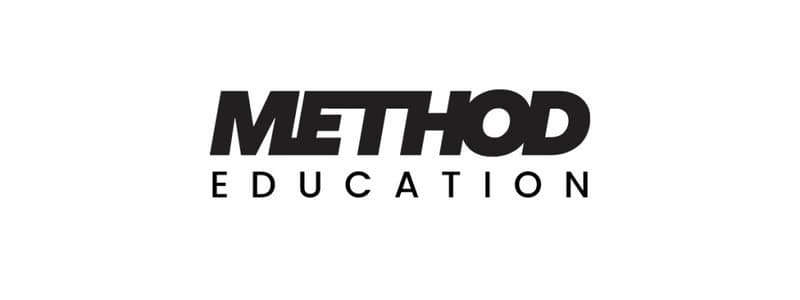Podcast
Questions and Answers
How should powerlifters incorporate high-intensity workouts into their training plan?
How should powerlifters incorporate high-intensity workouts into their training plan?
- Before a deload to minimize fatigue. (correct)
- As their main workout every day.
- Only on rest days for recovery.
- At the beginning of their training cycle.
What is a key component of the overload principle?
What is a key component of the overload principle?
- To gradually increase volumes and intensities. (correct)
- To avoid training to failure.
- To perform workouts without any recovery.
- To maintain the same weight during workouts.
What common challenge do powerlifters face regarding overload training?
What common challenge do powerlifters face regarding overload training?
- Improving their lifting technique.
- Finding appropriate weights to lift.
- Applying the overload principle correctly.
- Managing fatigue from overtraining. (correct)
What does overload refer to in the context of strength training?
What does overload refer to in the context of strength training?
What is the first part of the scientific definition of overload?
What is the first part of the scientific definition of overload?
Under what condition does the overload principle lead to significant adaptations?
Under what condition does the overload principle lead to significant adaptations?
What is the primary purpose of the body's adaptive abilities in response to overload?
What is the primary purpose of the body's adaptive abilities in response to overload?
Why can linear overloads be counterproductive in training?
Why can linear overloads be counterproductive in training?
What happens to the system once it has been presented with a certain stimulus?
What happens to the system once it has been presented with a certain stimulus?
What is the result of disruption of homeostasis in the body?
What is the result of disruption of homeostasis in the body?
What should be true regarding the average stimulus presented in training for overload to be effective?
What should be true regarding the average stimulus presented in training for overload to be effective?
What does maximal threshold refer to in the context of overload?
What does maximal threshold refer to in the context of overload?
What does the overload principle in powerlifting require for effective adaptation?
What does the overload principle in powerlifting require for effective adaptation?
Why is it important for training to become progressively harder over time?
Why is it important for training to become progressively harder over time?
Which aspect of the overload principle emphasizes the need for specific types of training?
Which aspect of the overload principle emphasizes the need for specific types of training?
What is the primary limitation of inadequately applying the overload principle in training?
What is the primary limitation of inadequately applying the overload principle in training?
In the context of powerlifting, what does training for '1RM lifting' refer to?
In the context of powerlifting, what does training for '1RM lifting' refer to?
What does 'specificity' primarily influence in the context of powerlifting and overload?
What does 'specificity' primarily influence in the context of powerlifting and overload?
How does the concept of overload relate to the adaptation process in strength training?
How does the concept of overload relate to the adaptation process in strength training?
Which statement best reflects the relationship between overload and achieving specific lifting goals?
Which statement best reflects the relationship between overload and achieving specific lifting goals?
Flashcards
Overload in Strength Training
Overload in Strength Training
The degree of disruption to the body's equilibrium caused by training.
Overload Principle
Overload Principle
The principle of gradually increasing the intensity and volume of training over time.
Adaptation
Adaptation
The body's response to overload by adapting to become stronger and more efficient.
Overload for Adaptation
Overload for Adaptation
Signup and view all the flashcards
1RM Lifting
1RM Lifting
Signup and view all the flashcards
Specificity of Training
Specificity of Training
Signup and view all the flashcards
Progressive Overload
Progressive Overload
Signup and view all the flashcards
Maximal Threshold
Maximal Threshold
Signup and view all the flashcards
Stimulus Within Capacity
Stimulus Within Capacity
Signup and view all the flashcards
Overload for Powerlifting
Overload for Powerlifting
Signup and view all the flashcards
Overload & Adaptation
Overload & Adaptation
Signup and view all the flashcards
Linear Overload
Linear Overload
Signup and view all the flashcards
Managing Fatigue
Managing Fatigue
Signup and view all the flashcards
Homeostasis Disruption & Adaptation
Homeostasis Disruption & Adaptation
Signup and view all the flashcards
Overload & Specific Goals
Overload & Specific Goals
Signup and view all the flashcards
Overload & Random Improvements
Overload & Random Improvements
Signup and view all the flashcards
Specificity & Powerlifting
Specificity & Powerlifting
Signup and view all the flashcards
High-Intensity Workouts & Powerlifting
High-Intensity Workouts & Powerlifting
Signup and view all the flashcards
Study Notes
Overload as a Training Principle
- Overload is a key principle in strength training, alongside specificity.
- It implies that a training stimulus must be greater than previous stimuli to elicit continued adaptation.
- A training stimulus must be within the maximal threshold of the adaptive system, ensuring the body is challenged but not overwhelmed.
Overload in Powerlifting
- Powerlifting-specific overload involves training at minimum functional intensities and volumes to maximize strength and size gains.
- It also requires progressive increases in training intensity and volume over time, not necessarily in every session, but over weeks, months, and years.
Importance of Overload
- Overload is vital for adaptation and improvement in strength training.
- Without overload, progress will be slow or nonexistent.
- The "insanity" workout method violates the overload principle by potentially exceeding the body's adaptive window, making future overload difficult.
Practical Application of Overload
- To apply the overload principle, lift heavy consistently and progressively increase the weight, sets, reps, or a combination of these over time.
- However, it's crucial to avoid excessive overload, as it can lead to excessive fatigue and hinder recovery, reducing the effectiveness of training.
Studying That Suits You
Use AI to generate personalized quizzes and flashcards to suit your learning preferences.



